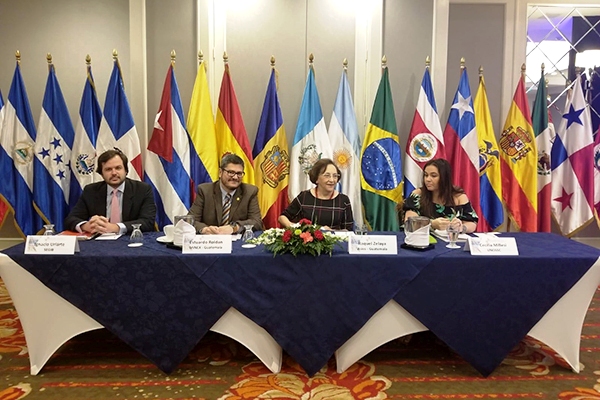Participating in the Ibero-American Summit is a big deal for most of the countries involved. There is not only one way of doing so. The Ibero-America Organization has named different forms of participation that grant diverse rights to the countries involved during the Summit. Read on to find out which the countries with full rightsare and which have a reduced action span.
Members
Full Members

Back in 1991 when the first Summit was held, there were nothing but full members. All the participant countries: Brazil,Bolivia, Argentina, Costa Rica, Colombia, Dominican Republic,Cuba, Chile, Ecuador, Guatemala, El Salvador, Honduras, Nicaragua, México, Panamá, Perú, Paraguay,Portugal, Uruguay ,Spain and Venezuela are to this day the full members that get to give their opinion, make suggestions and decisions. By the year 2004, Andorra joined in.
Associate Members
In 2009 the Philippines and Equatorial Guinea were allowed in as Associate Members to the Summit and Organization. The participation of Puerto Rico as another associate member has not been continuous, but sporadic, since it is not a sovereign country. Countries that are not sovereign are not allowed to participate fully in the Summit.
San Salvador Consensus

The presidents who got together for the 17th summit took on the San Salvador Consensus and created a new figure for the moment that was called Associate Observers and Consultants of the Ibero-American Conference.
Associate Observers
These are States that share cultural and language affinity with the full members of the Summit or that, according to the organism could make a significant collaboration to the region. In order to receive this degree, the voting must be unanimous. Once selected as such, this associate observer should adopt the principles and values of the Ibero-American conference fully.
The Associate Observers today are: Korea, Japan, Haiti, France, Morocco, Netherlands, Philippines, Belgium, and Italy.
Benefits Of The Associate Observers
For being an associate observer, States acquire a certain amount of obligations with the Summit, but are also granted these benefits:
- Participate on the Ibero-American Summit with the Presidents and Chiefs of State of all the full members every two years.
- Participate on the Conference´s Ministry and Sector reunions.
- Participate on the National Coordinators, Chancellors, and Cooperation reunions.
- Participate on every Cooperation activity available.
Consultant Observers
These are not countries or states, but rather non-governmental organisms that are community-oriented.
They need to have at least a section dedicated fully to this and the explicit will of adding to the strengthening, projection and promotion of the Ibero-Americas with significant contributions. Just like the Associate Observers, all the foundations, principles and values of the Ibero-American Conference need to be fully agreed upon.
Consultant observers have the right to the same benefits as Associate Observers and currently are: ALADI, CEPAL, OIM, OIT, OPS, PNUD, PNUMA, BID, CAF, PMA, FAO, FLACSO, OCDE, OECO, SELA and UL.
All members of the Ibero-American Summit and Organization need to have a common goal that is helping the region become a better place for all its inhabitants.
